by Mustafa Hasan
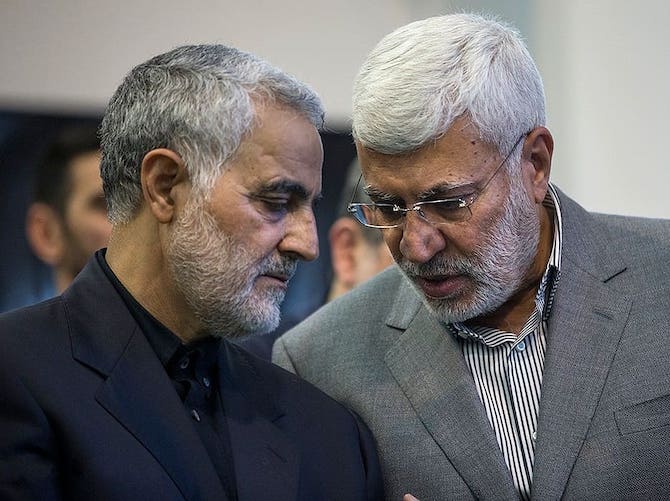
While the international media has focused extensively on the political and security repercussions of the assassination of Qassem Soleimani in Iraq by US forces on 3 January 2020, less attention has been paid to the killing of Abu Mahdi al-Muhandis in the same strike.
The death of Jamal Ja’ffar (aka Abu Mahdi al-Muhandis), who was officially deputy head of Iraq’s Popular Mobilization Forces (PMF) and in practice their commander, has made the Iraqi political scene even more fraught; straining the consensus within Iraq’s broader Shi’a political community, especially in the face of the challenges posed by protests and economic crises associated with entrenched corruption in government institutions. The absence of Abu Mahdi, a father-like figure to Iraqi Shi’a armed groups, has effectively put a brake on numerous projects pursued by the pro-Iranian resistance axis in Iraq.
Iraq’s Shi’a have few other figures on a par with Abu Mahdi. He was unusual in his ability to connect members of the ‘Shi’a crescent’ that extends from Tehran to Beirut, and cultivated relations with Shi’a jihadist networks domestically and abroad over the course of several decades. His close relationship with Qassem Soleimani, arguably one of the most powerful figures in Iranian foreign policy, made him a fundamental pivot within the Shi’a political community, around which Iraqi Shi’a factions gathered, trying to unite and consensually resolve disputes amongst conflicting parties while distributing apportioned wealth and influence to followers.
Armed violence featured heavily in his life story, beginning with his time in Kuwait in the 1980s. He later undertook various militant activities inside and outside of Iraq, the last of which when he assumed the position of field commander of the PMF during the war against ISIS in 2014. A large section of the Shi’a public came to view Abu Mahdi as one of the most prominent leaders of the war and the defence of the nation against external threats. At the same time, the Iraqi media campaign against Daesh made Abu Mahdi into a hero of his sect. Latterly, Abu Mahdi’s influence within the government was apparent during the recent Iraqi protests against the ‘Al-Bina’ coalition (whose rise within parliament relied on the victory of the PMF associated with it in the war against ISIS). Abu Mahdi headed what was known as the ‘crisis cell’, to deal with the protests: acts which he categorised as foreign plots against the Resistance axis, and thus deserving of harsh repression.
Designated a terrorist by the US government on account of his participation in militant activity, Abu Mahdi inspired mixed opinions amongst the Iraqi Shi’a leadership, and some clearly saw dangers in granting such power to a polarising military figure. But among young Shi’a jihadists Abu Mahdi was popular, and this was clearly demonstrated in the wide dissemination of photos of him over youth social media pages. For them, he was an emblematic revolutionary leader with whom they could relate. He was skilled at gaining the affections of young Shi’a inclined to religiously motivated violence, behaving modestly and talking simply with them. He invoked a rich tradition of historical Shi’a jihadist symbols and associated his actions with them. At the same time, he was a charismatic father-like figure, who appeared often in the media with young people on the battlefields in which he had been fighting since the 1980s, where in different countries he took up arms in the service of exporting Iran’s ‘Wilayat al-Faqih’ revolution.
Politically, Abu Mahdi was a prominent player in Iraq’s ‘deep state’, shaping both domestic and foreign policy. After 2014, when he shot to fame as a PMF military field commander, he became a complex shadow player in the decision-making machine governing the Shi’a paramilitary groups. He was instrumental in the process of distributing the wealth and positions considered to comprise the Shi’a’s ‘share’ in the post-2003 system. But in the years after 2014, the political bloc representing Shi’a paramilitary groups witnessed a major change with the addition of a new group of Sunni political leaders to the alliance. Prior to 2014, leading Sunni personalities in Iraqi politics including the cleric Harith al-Dhari, Ahmed al-Alwani, Osama al-Nujaifi, Raf’i al-Issawi, Tariq al-Hashemi and Adnan al-Dulaimi had forcefully rejected the recalibration of power that followed regime change in 2003, and especially Shi’a dominance within it. Their influence diminished with the rise of ISIS and the government’s issuance of arrest warrants against them on terrorism allegations. Today most of them live outside of Iraq.
Post-2014, Abu Mahdi worked to support and finance the political projects of new Sunni leaders in Sunni areas, in addition to enabling them to form their own factions (known as ‘the tribal mobilisations’ or ‘hashd’) under the banner of the PMF. Figures such as Muhammad al-Halbousi (the current speaker of the parliament), Falah al-Zaydan, Khamis al-Khanjar, Muhammad al-Karbouli, Ahmad al-Jubouri (‘Abu Mazen’) and Yazan Mishaan al-Jabbouri were brought into the Bina Coalition as part of the project to promote Sunni leaders who were reconciled with Shi’a predominance in government, the effects of the post-2003 changes, and the influence of Iran in Iraq. The new project depended not just on promoting new Sunni leaders who were closer to Iran, but on actually making them part of the project to extend Iranian influence in the region, and to block the project to increase the influence of the Gulf states, Turkey and the US in Iraq. As a consequence, today the military wings of the pro-Iranian PMF and associated factions have a strong complementary political arm which includes Sunni allies, who are partners in security and in political decision-making. This gives them at a distinct advantage over other political forces in Iraq.
At a local level, in the post-ISIS phase, Abu Mahdi used the Shi’a PMF’s influence on emerging Sunni leaders in liberated areas of Iraq to direct the process of dealing with the crises caused by ISIS. These crises included issues pertaining to the management of IDPs and of ‘ISIS families’, and to the tribal practice of seeking vengeance on tribes who counted ISIS members or supporters amongst their number. Abu Mahdi’s alliance worked to reconcile the tribes and facilitate the process of reconstruction, which in turn constituted a political key to building more influence and power for the Bina Coalition.
Today, the Coalition has been fractured by protests led by Iraqi Shi’a youth against government corruption and foreign influence. Ayatollah Ali al-Sistani’s support for protestors increased pressure on the government, leading to the resignation of Prime Minister Adel Abdul Mahdi on 1 December. In early February, the two core political blocs nominated Muhammad Tawfiq Allawi as a replacement, after two months of paralysis and political wrangling. And, in mid-February, Abu Fadak Abid Al-Aziz Al-Mohammadawi was announced as successor to Abu Mahdi as Chief of Staff of the PMU. Abu Fadak is a former member of the Badr Organisation, who later became one of the founding leaders of the Iraqi Hezbollah militia which was established 2006, where he served as the first deputy to Abu Mahdi. More recently, Abu Fadak parted ways with the PMU, and without the stature enjoyed by Abu Mahdi at home and amongst Shi’a paramilitary networks abroad, it remains to be seen whether he will provide the same sort of leadership to the movement as his predecessor. Distrusted as he was by many, Abu Mahdi provided leadership, guidance and political stability to Bina. Now he has gone, the future of the Coalition and its associated projects – including those pertaining to reconciliation – hang in the balance.



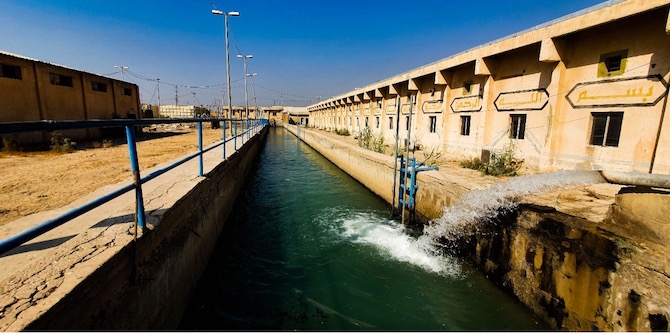
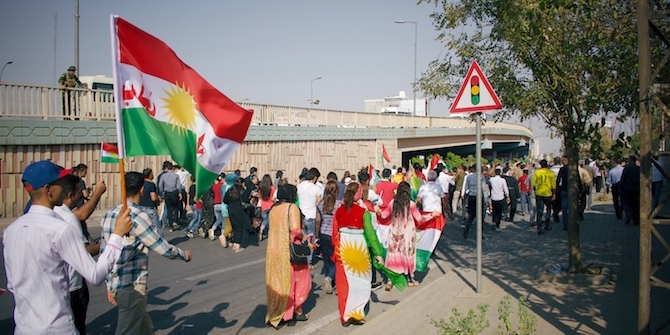
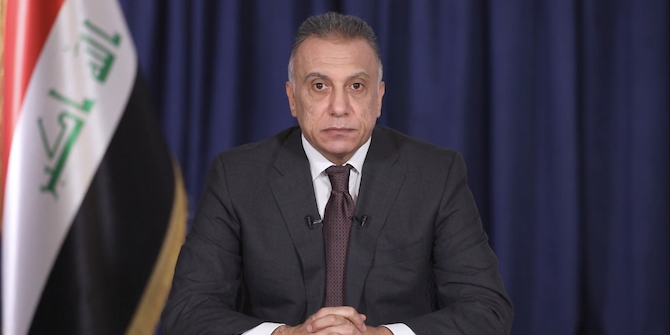
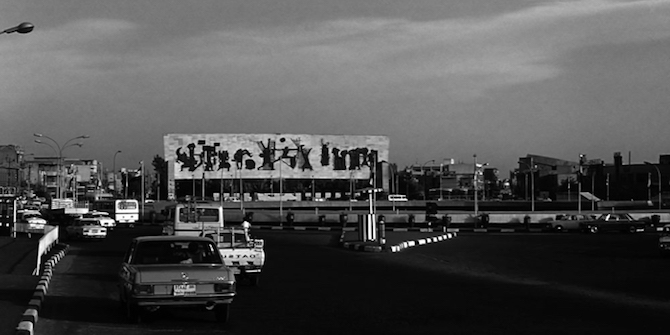
3 Comments